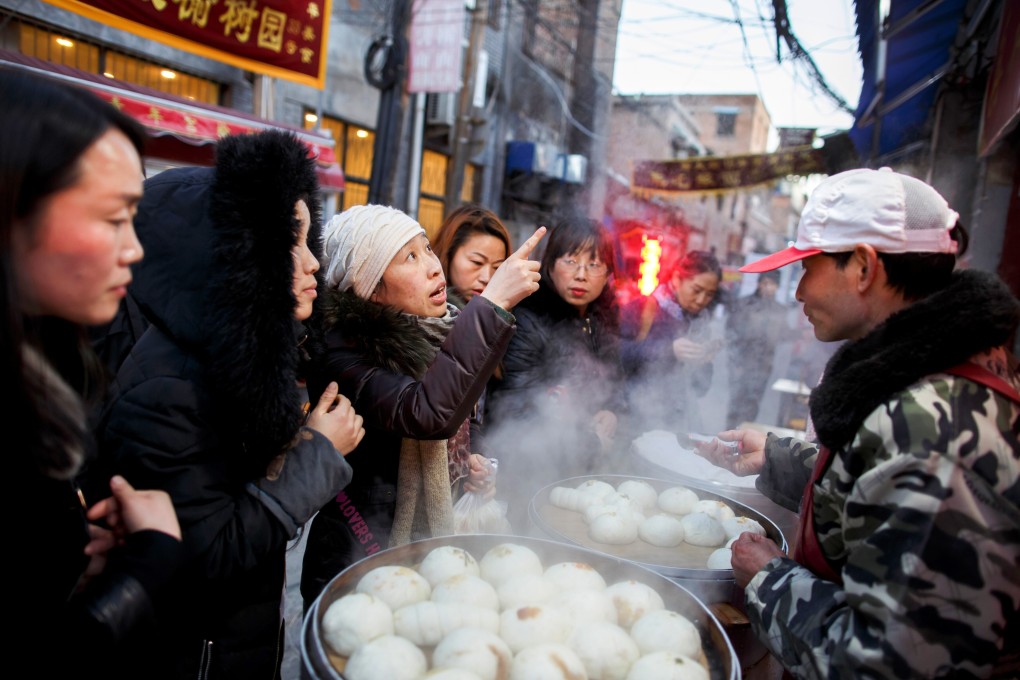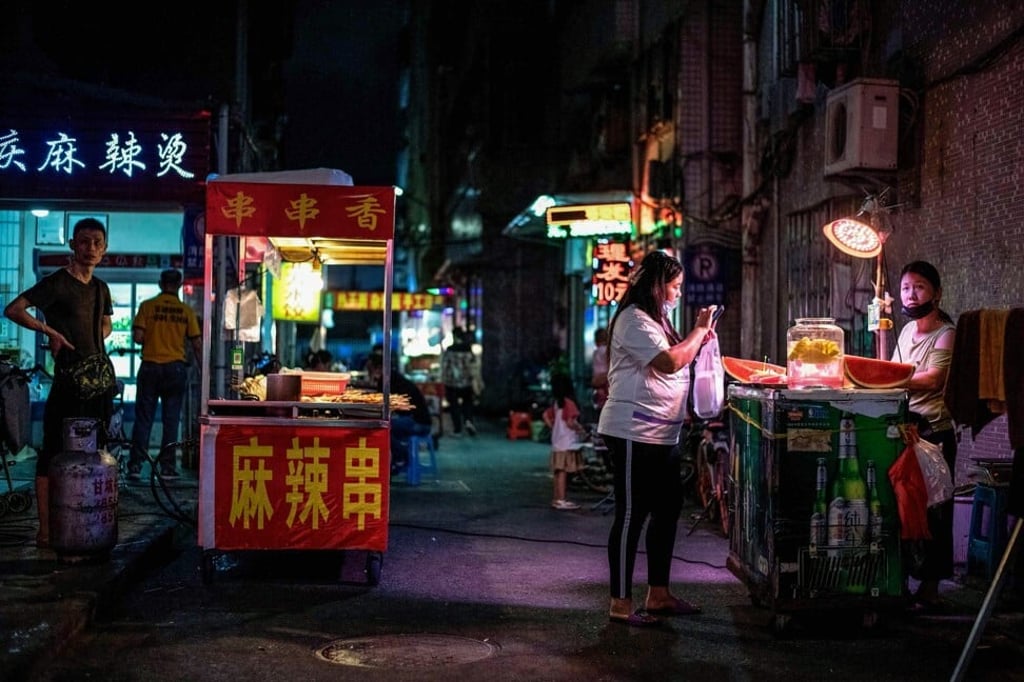Advertisement
China’s street vendors can help ease unemployment, but can they fend off the city guardians?
- Government says roadside stalls and small shops are ways for ordinary people to make a living in a post-coronavirus economy
- But many say they are hampered by the Chinese ideal of clean streets and constant presence from urban management officials
Reading Time:4 minutes
Why you can trust SCMP

Under the summer heat of an early June afternoon, Pan Yunxia was waiting quietly for customers to buy vegetables or socks from her roadside stalls in Beijing.
It sounds like a strange mix. Pan, a sock vendor for over two decades, said the vegetables were new to her business.
They were intended to be a convenience for nearby residents amid the coronavirus outbreak, she said. She took the bold, enterprising step to expand her wares beyond socks because the local government was loosening its grip on street vending and its minders – chengguan , or urban management officials – were no longer taking such a hard line with businesses on the street.
Advertisement

“Chengguan still warn us every day and threaten to drive us away,” Pan said. “But there’s a change of heart from the central government. The chengguan said they had not received any notice from their supervisors yet, but I guess they understand the change is going to happen sooner or later.”
Advertisement
Wrapping up the annual meeting with the nation’s top legislative body last week, Chinese Premier Li Keqiang praised a city in a western province that recently allowed 36,000 mobile stalls to be set up along roadsides.
As a result it created 100,000 jobs, Li said at a time when employment prospects in the country are gloomy under the shadow of coronavirus.
Advertisement
Select Voice
Select Speed
1.00x